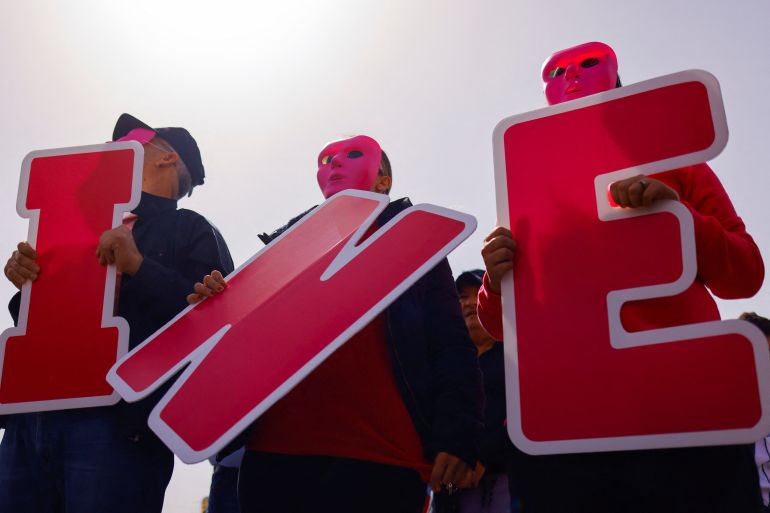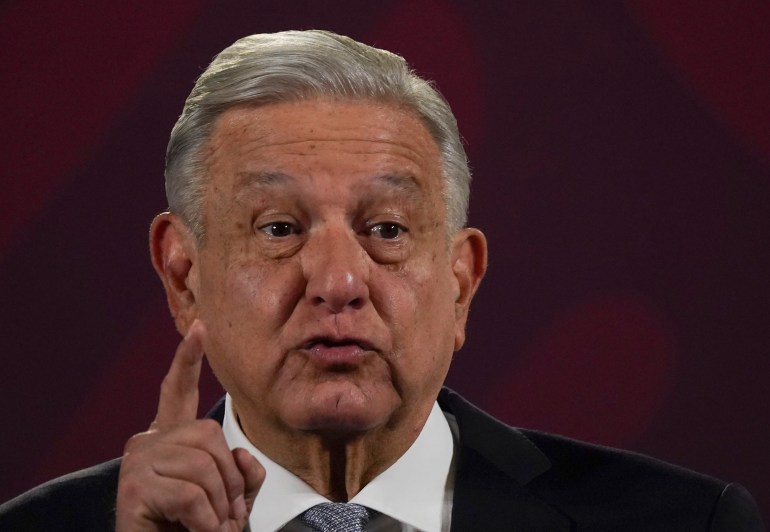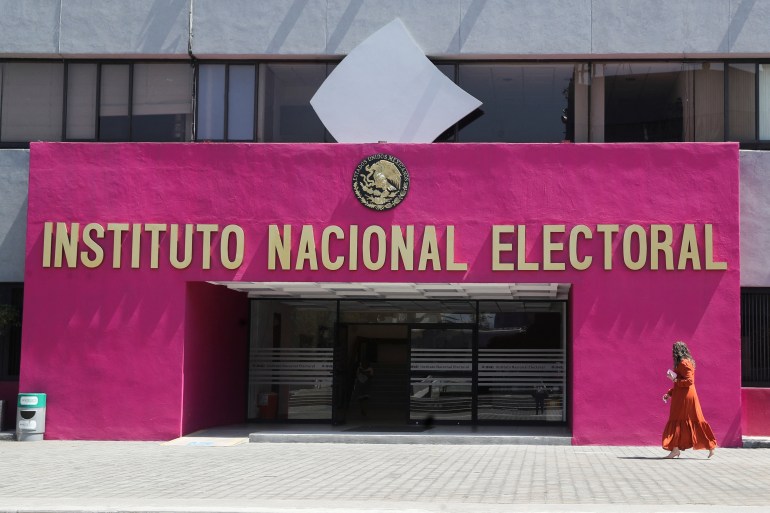Mexico’s high court annuls part of controversial electoral reform
The ruling is a setback for the administration of left-wing President Andrés Manuel López Obrador, which supported reform.

The Mexican Supreme Court has struck down a portion of the controversial electoral reform package known as “Plan B”, which would reduce the budget and powers of the country’s election authority.
In a vote of nine in favour and two against, the court invalidated the first part of the legal reforms intended to restructure Mexico’s National Electoral Institute, an autonomous election oversight body commonly abbreviated as INE.
Keep reading
list of 3 itemsMexico’s Lopez Obrador denounces USAID funds as ‘interventionist’
Mexico’s Lopez Obrador backs plan to shutter transparency office
That first section included reforms to INE’s administrative responsibilities and its ability to regulate political communications.
In Monday’s decision, the court ruled that Mexico’s Congress has committed violations of legislative procedure in pushing Plan B forward without adequate time for debate and consideration.
“There was no real and substantive democratic deliberation,” said Luis María Aguilar Morales, one of the ministers of the court, citing constitutional law that requires legislative debate.
Another minister, Jorge Mario Pardo Rebolledo, echoed that criticism, saying “there was not even three hours” between the time when Congress introduced December’s bill and when it voted.

Monday’s court decision was a blow to the administration of President Andrés Manuel López Obrador, who backed the Plan B reform and has criticised wasteful spending at INE and other government watchdog agencies.
But protests broke out earlier this year after Congress approved the final part of Plan B on February 22, with critics denouncing López Obrador and his ruling Morena party for eroding Mexico’s democratic institutions.
Tens of thousands of people took to the streets of Mexico City in February to support INE, wearing pink and white in solidarity with the electoral agency. The city’s main plaza — thought to hold approximately 100,000 people — overflowed with demonstrators carrying signs with slogans like, “Don’t touch my vote.”
It was one of the largest protests of López Obrador’s tenure so far, which started in 2018. Presidents in Mexico are limited to a single, six-year term, but López Obrador’s Morena party is considered a frontrunner for the 2024 presidential election.
Mexico’s Supreme Court is scheduled to review a second part of the electoral reform package at a later date, dealing with proposed changes to INE’s budget, staffing and powers.

Monday’s decision comes after the court froze the Plan B reform in March, preventing them from being implemented while INE filed legal challenges. The court cited “the possible violation of citizens’ political-electoral rights” as part of its rationale for the move.
The legislative package known as Plan B is a scaled-back version of the constitutional reforms López Obrador and his party originally sought. But while the Morena party controls both houses of Congress, it does have the two-thirds majority required to amend the Constitution.
With Plan B now in danger of being overturned in court, some in López Obrador’s administration are calling for a “Plan C”, which involves sending electoral reforms directly to the voters to decide on.
“The Mexican people seek to regain confidence in their institutions, but the [Supreme Court] decided to continue protecting private interests,” Adán Augusto López Hernández, Mexico’s secretary of the interior, posted on Twitter after Monday’s court ruling.
He accused the court of undermining the will of the people by negating their elected representatives’ decision. There is no other way, López Hernández concluded: “Plan C at the polls.”
López Obrador and members of his administration have been openly critical of INE for many years. After two unsuccessful attempts to win the presidency in 2006 and 2012, López Obrador claimed that fraud had robbed him of victory, leading protests and demanding a recount.
During his time as president, he has also attempted to curtail the authority of another government oversight body, the Institute for Information Access and Transparency.
And he has also clashed with the Supreme Court on several occasions, claiming its bench is biased against him. In April, the court annulled one of his initiatives to bring a civilian force under military control, amid criticism that such a move would grant the armed forces too much power.
But López Obrador has brushed aside criticism that his administration is attempting to weaken the government’s checks and balances.
For instance, when the United States indicated its support for “independent, well-resourced electoral institutions” amid February’s protests, the Mexican president shot back at the implicit criticism, saying: “There’s currently more democracy in Mexico than in the United States.”